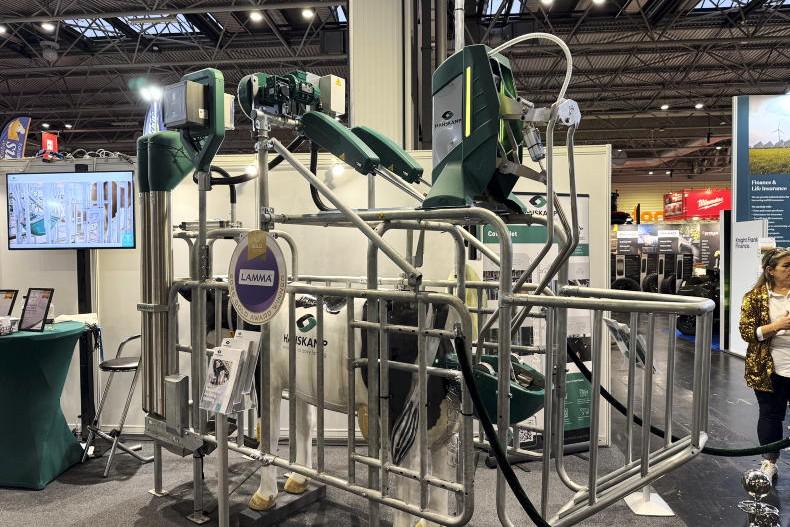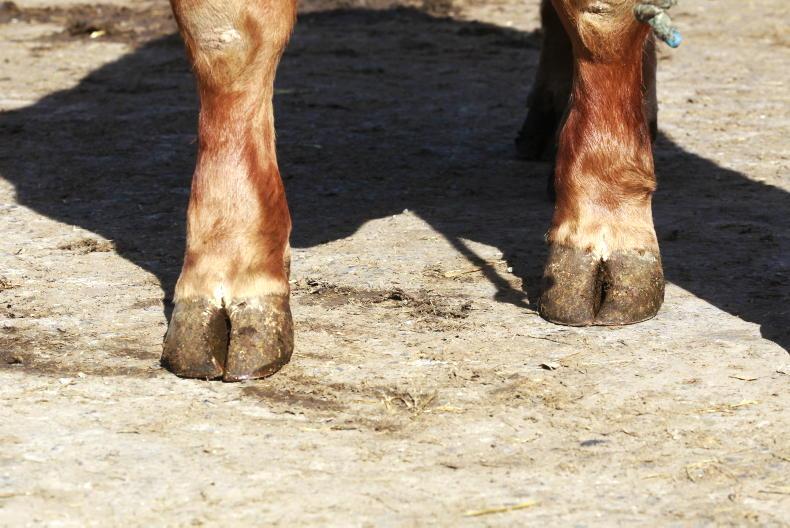His comments indicating that blame for any fodder shortage lay at the doorstep of individual farmers followed by attempts to play down the extent of the crisis have damaged Minister Creed's standing among farmers.
It is difficult to understand why the minister appears to have adopted such a antagonistic approach to this issue – not just over the past few weeks, but ever since the potential of a regional forage shortage was first raised last November. At that time, there were calls for the minister to implement a meal voucher scheme that would allow troubled farmers feed increased levels of meal and stretch out limited forage supplies.
Instead, the Government response, after much resistance, was to implement a fodder aid scheme to help subsidise the transport of fodder. The scheme has received much criticism in recent months, largely focused on the level of complexity involved in accessing funding.
Moving forage around the country was not the solution
However, the real failure of the minister was to ignore calls from the IFA to also implement a meal voucher scheme. Moving forage around the country was not the solution. Simple mathematics would show that farmers paying to haul 24t of silage the length of the country were actually bringing 15t to 18t of water on their farms and just 6t to 9t of dry matter feed.
By far the most financially viable response on any farm to a potential forage shortage, especially where it is identified early, is to reduce demand by feeding extra meal – not paying to haul water across the country. Where forage is extremely tight, demand can be reduced by up to 50% by increased meal feeding.
Extreme situation
While the situation is now much more extreme, with some farms simply having no fodder left, the option of feeding additional meal is still the most viable response on most farms, particularly when compared with the price of imported forage.
The steps taken by the minister last week to support the importation of fodder will help farmers. But despite the apparent large volumes arriving at Irish ports, the overall impact will be small. By responding to the ongoing calls from the IFA to implement a meal voucher scheme to help farmers stretch out the limited fodder supplies already on farms, the minister could make a real difference if he wanted to.
Feed discount
Meanwhile, we have seen Glanbia take the lead in this regard, offering a €50/t discount to members on all ruminant feeds including milk powder purchased during April. In the absence of a response from the minister, more co-ops should consider adopting such an approach.
Lorry loads of fodder arriving on our shores might make good viewing for national media, but for most farmers increasing meal feeding levels and reducing fodder demand is a more viable solution.
Read more
Emergency fodder trickles down to farms
Fodder crisis: moral support and meitheal spirit will keep farmers fighting
His comments indicating that blame for any fodder shortage lay at the doorstep of individual farmers followed by attempts to play down the extent of the crisis have damaged Minister Creed's standing among farmers.
It is difficult to understand why the minister appears to have adopted such a antagonistic approach to this issue – not just over the past few weeks, but ever since the potential of a regional forage shortage was first raised last November. At that time, there were calls for the minister to implement a meal voucher scheme that would allow troubled farmers feed increased levels of meal and stretch out limited forage supplies.
Instead, the Government response, after much resistance, was to implement a fodder aid scheme to help subsidise the transport of fodder. The scheme has received much criticism in recent months, largely focused on the level of complexity involved in accessing funding.
Moving forage around the country was not the solution
However, the real failure of the minister was to ignore calls from the IFA to also implement a meal voucher scheme. Moving forage around the country was not the solution. Simple mathematics would show that farmers paying to haul 24t of silage the length of the country were actually bringing 15t to 18t of water on their farms and just 6t to 9t of dry matter feed.
By far the most financially viable response on any farm to a potential forage shortage, especially where it is identified early, is to reduce demand by feeding extra meal – not paying to haul water across the country. Where forage is extremely tight, demand can be reduced by up to 50% by increased meal feeding.
Extreme situation
While the situation is now much more extreme, with some farms simply having no fodder left, the option of feeding additional meal is still the most viable response on most farms, particularly when compared with the price of imported forage.
The steps taken by the minister last week to support the importation of fodder will help farmers. But despite the apparent large volumes arriving at Irish ports, the overall impact will be small. By responding to the ongoing calls from the IFA to implement a meal voucher scheme to help farmers stretch out the limited fodder supplies already on farms, the minister could make a real difference if he wanted to.
Feed discount
Meanwhile, we have seen Glanbia take the lead in this regard, offering a €50/t discount to members on all ruminant feeds including milk powder purchased during April. In the absence of a response from the minister, more co-ops should consider adopting such an approach.
Lorry loads of fodder arriving on our shores might make good viewing for national media, but for most farmers increasing meal feeding levels and reducing fodder demand is a more viable solution.
Read more
Emergency fodder trickles down to farms
Fodder crisis: moral support and meitheal spirit will keep farmers fighting










SHARING OPTIONS